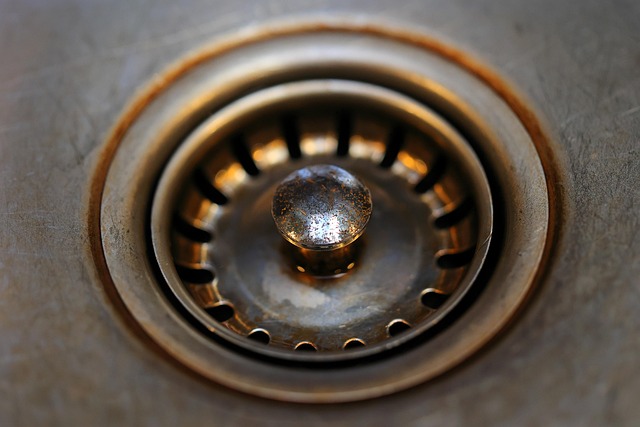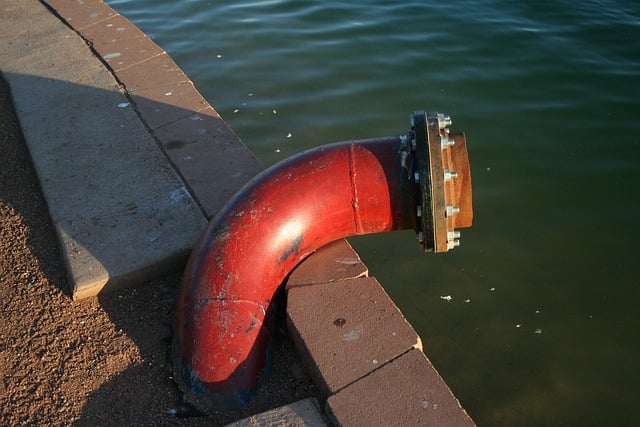Ignoring early signs of clogged drains, like slow drainage or foul odors, can lead to serious plumbing issues. Persistent problems like gurgling sounds and water pooling demand immediate action. Preventative measures such as avoiding grease disposal, non-biodegradable item flushing, regular professional cleaning, and using drain covers are crucial for maintaining healthy drains, extending plumbing life, and avoiding costly repairs.
Are you tired of dealing with slow-draining sinks or showers? Recognizing the signs of a clogged drain early can save you time and money. This article equips you with the knowledge to identify common indicators, understand when immediate action is necessary, and learn prevention tactics for healthy drains. Learn how to spot the subtle hints of clogs before they become major issues, ensuring smooth, efficient drainage in your home.
- Recognizing Common Signs of a Clogged Drain
- When to Take Immediate Action
- Prevention Tactics for Healthy Drains
Recognizing Common Signs of a Clogged Drain

Many people tend to overlook the subtle signs that their drains are clogging until it’s too late, leading to costly and inconvenient plumbing issues. Recognizing common signs of a clogged drain early on can help you prevent these problems. One of the most noticeable symptoms is a slow draining sink or tub. If you notice that water takes an abnormally long time to disappear after you’ve turned off the faucet, it could indicate a clog. Another sign to look out for is reduced water pressure in your fixtures. This happens when the drain is partially blocked, restricting the flow of water and reducing pressure throughout your plumbing system. Unpleasant odors coming from your drains are another red flag—a sign that waste is slowly decomposing, leading to unpleasant fumes. If you experience any of these signs, it’s wise to take action before the problem escalates.
When to Take Immediate Action

If you notice persistent or worsening drainage issues, it’s time to take immediate action. Ignoring signs of a clogged drain can lead to more severe and costly problems down the line. Look out for telltale symptoms such as slow draining, gurgling sounds coming from the pipes, or water pooling around the drain. These are clear indications that something is obstructing the flow of water.
When these signs manifest, especially if they persist despite regular cleaning, it’s crucial to address the issue promptly. Using household remedies like baking soda and vinegar can help in minor cases, but for more significant clogs, professional assistance is often required to prevent further damage to your plumbing system.
Prevention Tactics for Healthy Drains

Regular maintenance is key to keeping your drains healthy and preventing clogs. One effective prevention tactic is to avoid pouring grease, oil, or fat down the drain. These substances solidify over time, adhering to pipe surfaces and causing blockages. Additionally, never flush non-biodegradable items like wet wipes, sanitary products, or food scraps down the toilet or sink—items that don’t break down easily can accumulate and create significant clogs.
On a broader scale, scheduling professional drain cleaning services periodically can help remove built-up debris and ensure smooth water flow. Homeowners should also consider using drain covers or catchers to stop hair, soap scum, and other small particles from entering the pipes. By implementing these simple precautions, you can mitigate the risk of clogged drains and prolong the life of your plumbing system, avoiding costly repairs and inconveniences associated with severe clogs.
Identifying the signs of a clogged drain early can prevent significant damage. By understanding when to take immediate action, you can save time and money on costly repairs. Implementing simple prevention tactics will ensure your drains remain healthy for years to come. Remember, regular maintenance is key to avoiding the stress and hassle associated with backed-up plumbing. Pay attention to the signs, act promptly, and keep your drainage system flowing smoothly.
